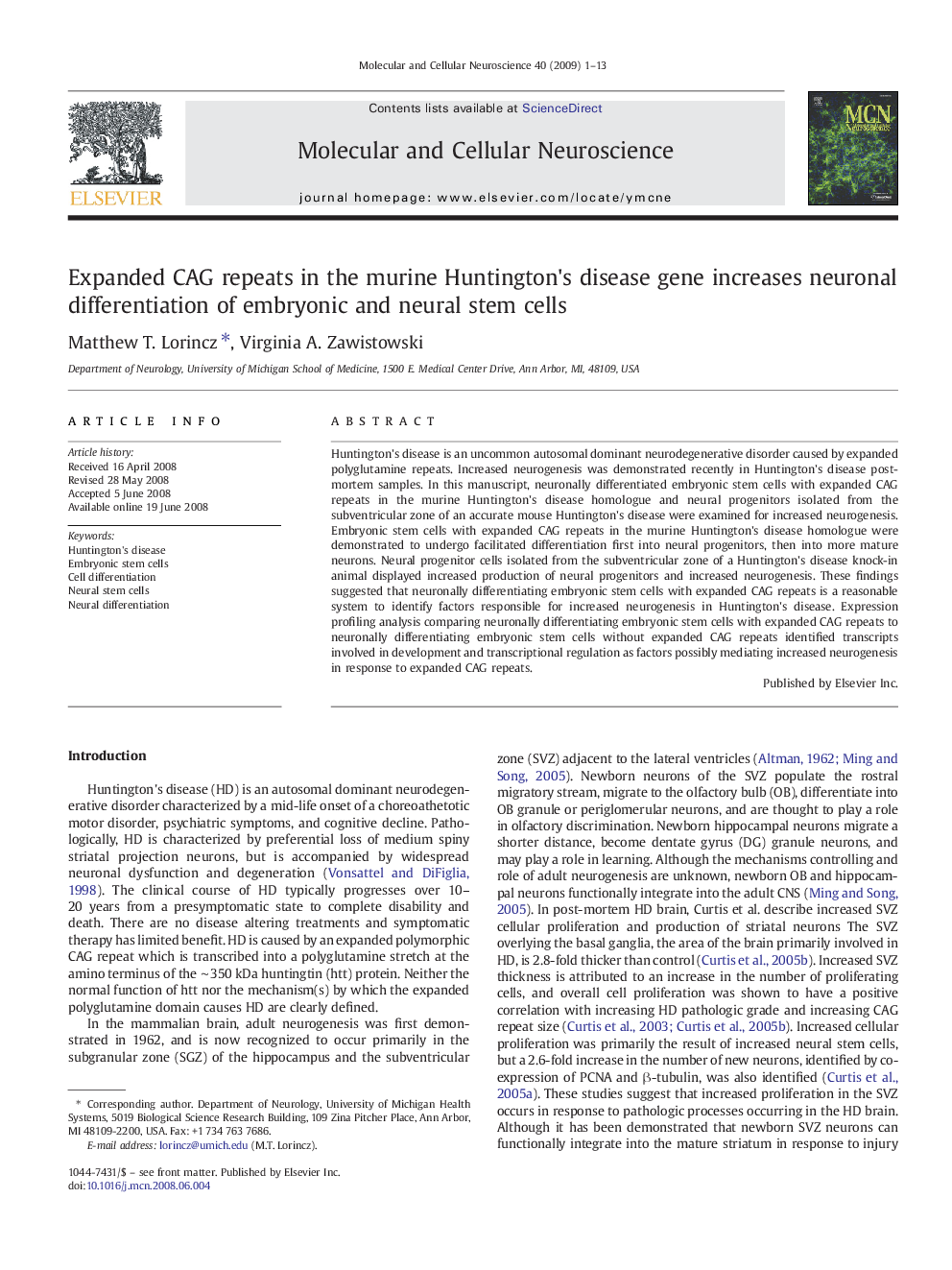| Article ID | Journal | Published Year | Pages | File Type |
|---|---|---|---|---|
| 2198949 | Molecular and Cellular Neuroscience | 2009 | 13 Pages |
Huntington's disease is an uncommon autosomal dominant neurodegenerative disorder caused by expanded polyglutamine repeats. Increased neurogenesis was demonstrated recently in Huntington's disease post-mortem samples. In this manuscript, neuronally differentiated embryonic stem cells with expanded CAG repeats in the murine Huntington's disease homologue and neural progenitors isolated from the subventricular zone of an accurate mouse Huntington's disease were examined for increased neurogenesis. Embryonic stem cells with expanded CAG repeats in the murine Huntington's disease homologue were demonstrated to undergo facilitated differentiation first into neural progenitors, then into more mature neurons. Neural progenitor cells isolated from the subventricular zone of a Huntington's disease knock-in animal displayed increased production of neural progenitors and increased neurogenesis. These findings suggested that neuronally differentiating embryonic stem cells with expanded CAG repeats is a reasonable system to identify factors responsible for increased neurogenesis in Huntington's disease. Expression profiling analysis comparing neuronally differentiating embryonic stem cells with expanded CAG repeats to neuronally differentiating embryonic stem cells without expanded CAG repeats identified transcripts involved in development and transcriptional regulation as factors possibly mediating increased neurogenesis in response to expanded CAG repeats.
